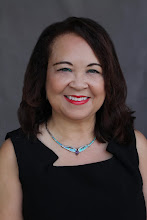4:13 p.m. Today's project was to "find a way--make a way--the Lord's way" through the end of this month. February always seems to be a stretching month, between the optimistic first month of a new year and our tax refunds arriving in March!
I can't help but think of the Lord's faithfulness through all generations (Psalm 89:1) or we wouldn't be here, would we? Whose family history doesn't include struggle, disaster, tragedy and injustice, the result of sin in this world, and man's utter selfishness, greed and desire for domination in personal and public life? Yet, the Lord gave our ancestors the perseverance to survive hard, menial work, because they had a vision of more successful generations to come, people they would never meet.
Last night after our daughters, son and their spouses left Heidi and Heather's birthday dinner party, I watched "The Help," the acclaimed movie about the daily experiences of Negro maids in the 1960's in Mississippi, the most segregated state in the Union. The effect of Jim Crow laws was far-reaching: armies of women entrusted with cooking a white family's meals, cleaning their homes and raising their children almost singlehandedly were not even allowed to use the families' bathrooms! One particularly cruel scene depicted a maid about to head home at the onset of a tornado, sent to the outhouse because it was "just a little rain." For the temerity to use an inside toilet, she was fired. Another maid, proud of her sons' acceptance into college, was falsely accused of stealing and arrested. When one maid's son was grievously injured on a logging job, his white overseer had his body dumped into a truck, and then left at a hospital to die. How many cases like this actually happened in the south before segregation was outlawed?
Some scenes were humorous in an ironic way, but I had more serious reflections, since both my parents were from the segregated south: my mom from North Carolina, my dad from Mississippi. They came of age, educated and successful, a decade before the Civil Rights era even began, because black society had its own successful institutions, primarily the churches. My father's family, later living in St. Louis, Missouri, became successful in the military and in business. My mother's grandfather was a Methodist minister who knew both Hebrew and Greek; my grandmother, a graduate of a black teaching college, taught in Greensboro. My mother attended Howard University, the famous black institution in Washington, D.C. before meeting and marrying a dashing young airman, Oliver Gray.
The slaves of only a two generations back from my grandparents worked hard to make their vision for future generations come to pass--and in many cases those visions did materialize. I think also of the faith of these Americans, much as I recall Hebrews 11, the Hall of Faith, speaking of those who sojourned in a strange land, while looking for their heavenly home. Hebrews 11:1 reminds us,
Now faith is the substance of things hoped for, the evidence of things not seen.
As for those freed slaves who toiled in the segregated post-Civil War South, they believed that their offspring would become educated and successful, because they knew what God's deliverance meant: emancipation through God's instrument Abraham Lincoln, and ultimately, salvation in Jesus Christ!
My grandmother, Pearl Waugh Jordan, now a retired widow, did housekeeping for a white friend, Mrs. Strong, once a week, to supplement her income. She was supporting my emotionally disturbed Aunt Clarice who had never married. As a child in Redlands, California, I remember one of "Nana's" letters that included a picture of "Tuffy" Strong, the family's poodle. When we visited my grandmother, we had gifts awaiting us from her employer. In fact, Mrs. Strong was the one who informed my mother that Nana was seriously ill. My mother went to Greensboro for a month to care for her mother and make final arrangements after her decease, as well as arrange with the family lawyer for Clarice's nursing home placement. As adults, my sister and I received checks for our share of the sale of Nana's home.
Hebrews 11:13-14, 16 says of the saints of old,
These all died in faith, not having received the promises, but having seen them afar off were assured of them, embraced them and confessed that they were strangers and pilgrims on the earth. For those who say such things declare plainly that they seek a homeland...But now they desire a better, that is, a heavenly country.Therefore God is not ashamed to be called their God, for He has prepared a city for them.
And now it's our turn, saints of God!
Sunday, February 26, 2012
Subscribe to:
Post Comments (Atom)



No comments:
Post a Comment